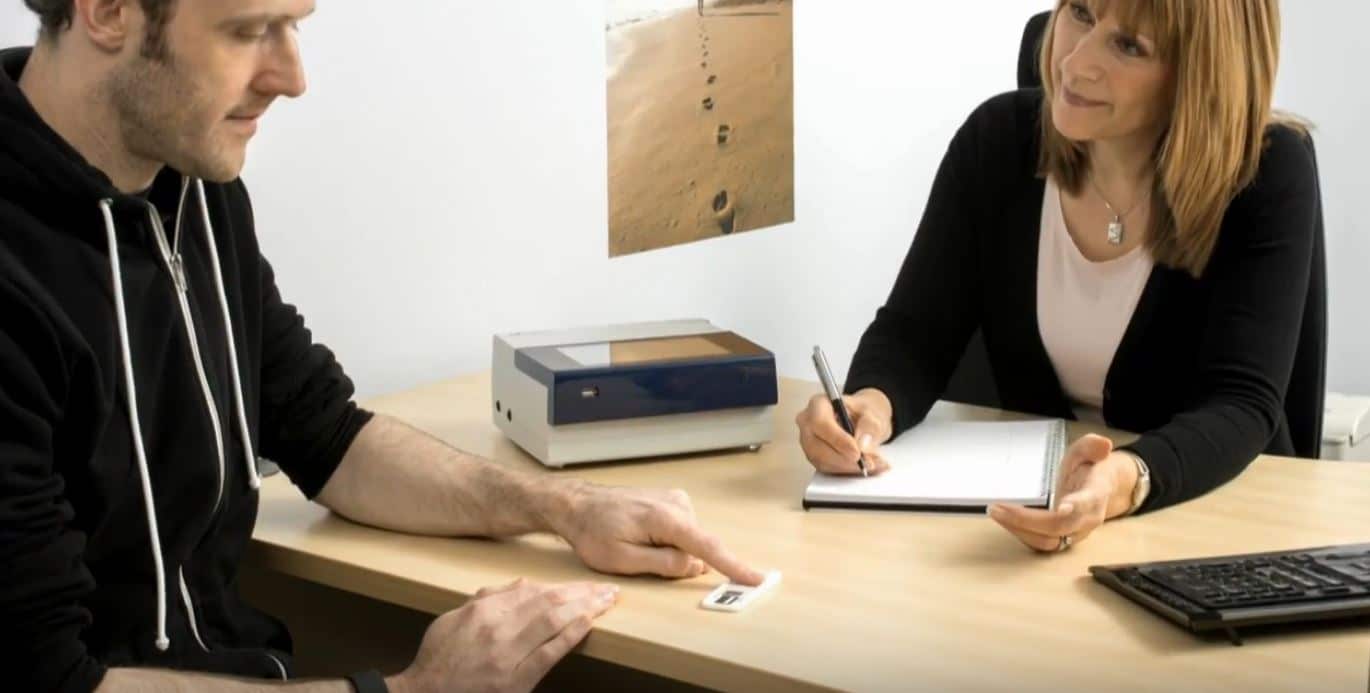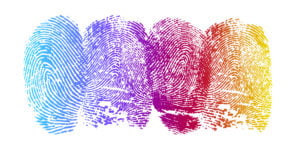Portable drug screening
The drug treatment agency Change, grow, live recently (15 March 2017) announced that it was piloting an innovative new approach to drug screening.
The non-invasive drug screening system from Intelligent Fingerprinting is easy to use, and will enable CGL to determine in minutes if a client has recently used any of the four drugs in the test – amphetamines, cannabis, cocaine and opiates. The Intelligent Fingerprinting solution detects drug use by analysing chemicals, known as metabolites, contained in the minute traces of sweat found in a fingerprint sample.
In comparison with traditional testing procedures involving saliva or urine, fingerprint sample collection takes only a few seconds and is dignified and hygienic, making it particularly convenient for organisations such as CGL as there is no need for specialist collection facilities or biohazardous waste disposal. CGL conducts regular drug tests as part of its ongoing rehabilitation activities, however the cost and complexity associated with traditional collection methods has been a barrier to widespread adoption. The initial Intelligent Fingerprinting system trial is taking place at a CGL clinic in East Anglia where early user engagement has been very positive and the volume of tests has been high.

How it works
The fingerprint-based drug screening system consists of a four-panel test cartridge and a portable analysis instrument which tests for all four substances simultaneously. The test takes 5 seconds to administer and 10 minutes to provide results. The video below gives more details:
https://www.youtube.com/watch?v=uNnqlrUdMG8
Rationale
The rationale for this approach is set out by CGL’s Medical Director Dr Prun Bijral:
We are a social care and health charity, and an important part of our work involves providing our clients with the support needed to help maintain recovery and reduce the possibility of a relapse. Having visibility of the client’s progress and whether or not they have used drugs recently is critical in determining how we tailor our programme to support each individual.
The Intelligent Fingerprinting system is an interesting proposition for our therapeutic environment, as testing doesn’t have to be carried out in a clinical setting. Overall we think that the system will make it much easier to set up screening sessions, collect samples, administer tests and get results. This flexibility means we can operate from within a broad range of venues – such as community centre clinics – and provide drug rehabilitation services close to the people who need our support.
During our early tests we’ve had positive feedback from both our counsellors and service users. The process of collecting fingerprint samples has been very easy and dignified – especially in comparison with urine samples or using oral swabs. In my view this is the most important benefit; the approach is respectful of our clients, and will help reduce some of the concerns people may have about entering treatment.
Pilot
The screening by fingerprint is being piloted at one of CGL’s clinics in the East Anglia area, before being rolled out to other regions depending on feedback from workers and service users.
Conclusion
It’s not hard to see why CGL is trialling this; compared to urine or saliva tests, fingerprinting is both much more dignified and non-invasive.
The other major advantage is the almost immediate feedback which enables worker and service user to celebrate progress or modify their approach to tackle any relapse.
It is this speed of feedback which makes the system likely to be picked up by a wide range of agencies in a variety of situations, providing the pilot is successful:
- Police road-side testing
- Prison drug testing
- Testing by coroners
- Testing of airline pilots
I can also see its use when a patient is admitted having overdosed but it is not clear which substances they have taken.
Drug testing can be a contentious subject, but where its use is appropriate and useful, the fingerprinting approach appears to be a significant step forward.
All innovation posts are kindly sponsored by Socrates 360 which provides a complete solution for staff, prisoners, probationers, etc. combining engaging content, simple set-up and an easy tracking system. Socrates 360 has no influence over editorial content.








2 Responses
Very innovative. I am encouraged to hear the results of the initial roll out. What is the response given to the patient when they are concerned about giving their fingerprints? Will this become a covered benefit from insurances? Will there be an overseer of the product like clip waiver that agencies will need to be certified through?
Lots of questions and very interested in more information. Ty for sharing.
Thank you for your comments Pamela – you are right to raise the question around taking a fingerprint but in our experience it has not been an issue so far. There is no image of the fingerprint retained and the analysis process effectively destroys the sample. Happy to answer any further questions you may have please contact me via info@intelligentfingerprinting.com